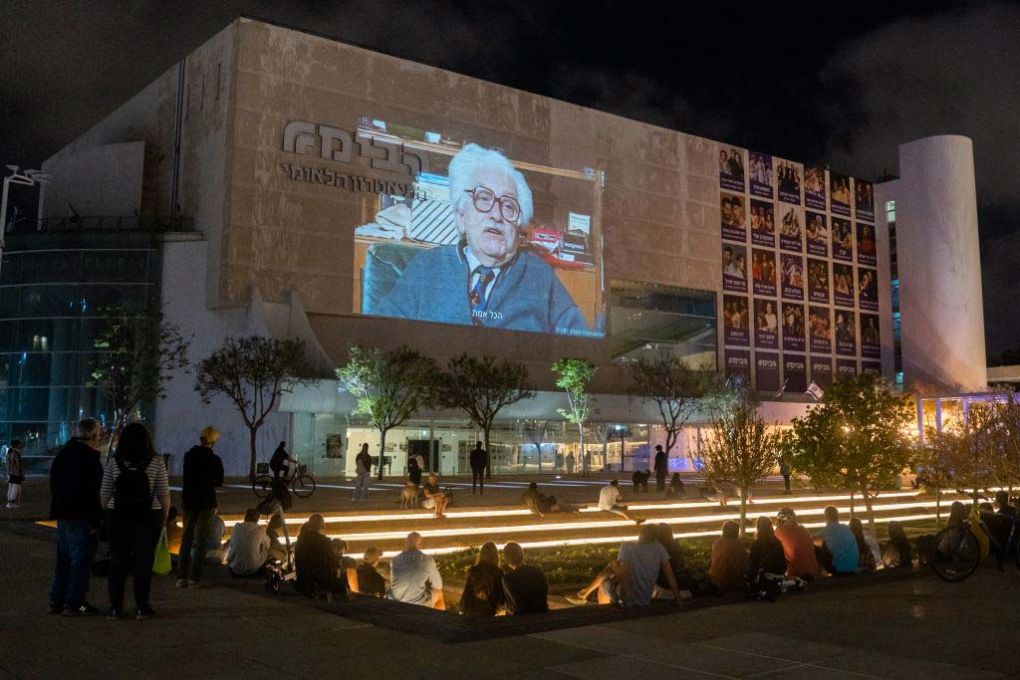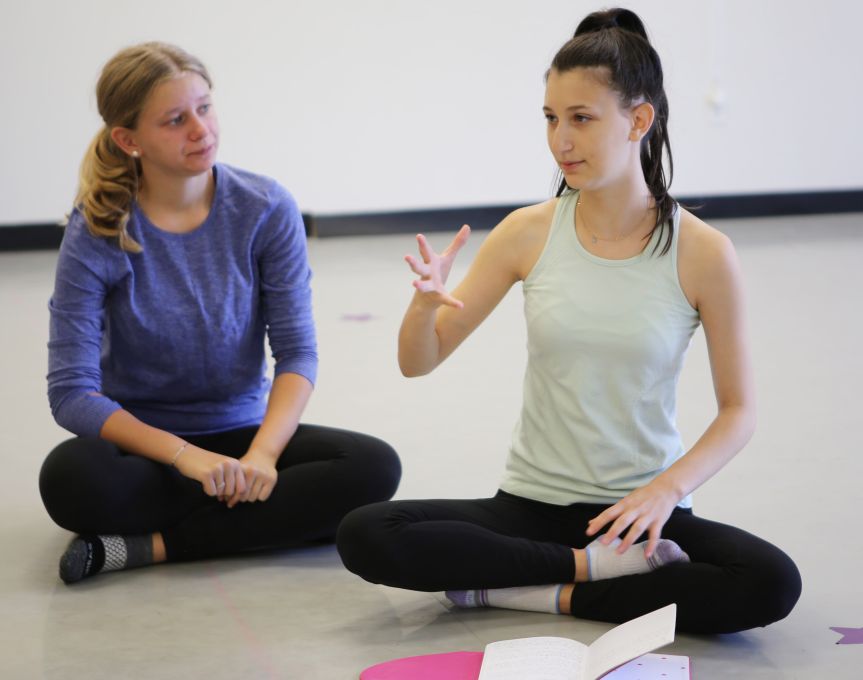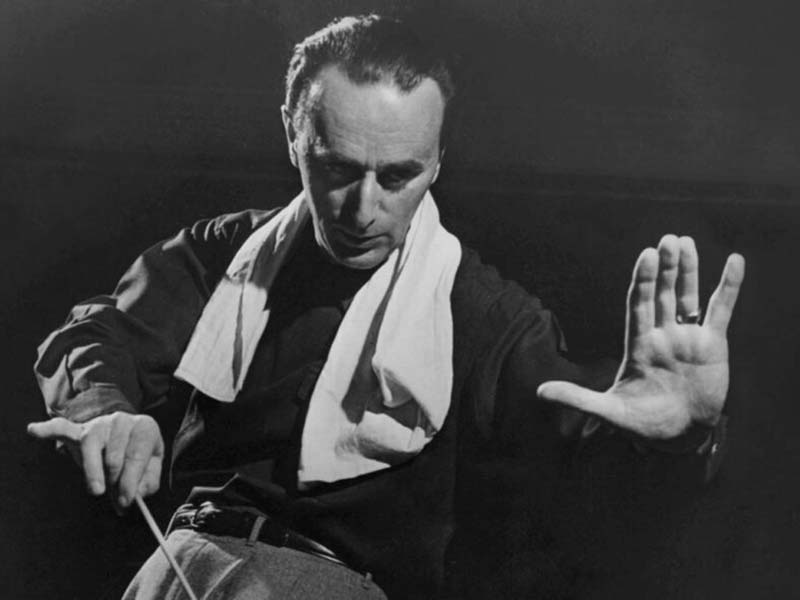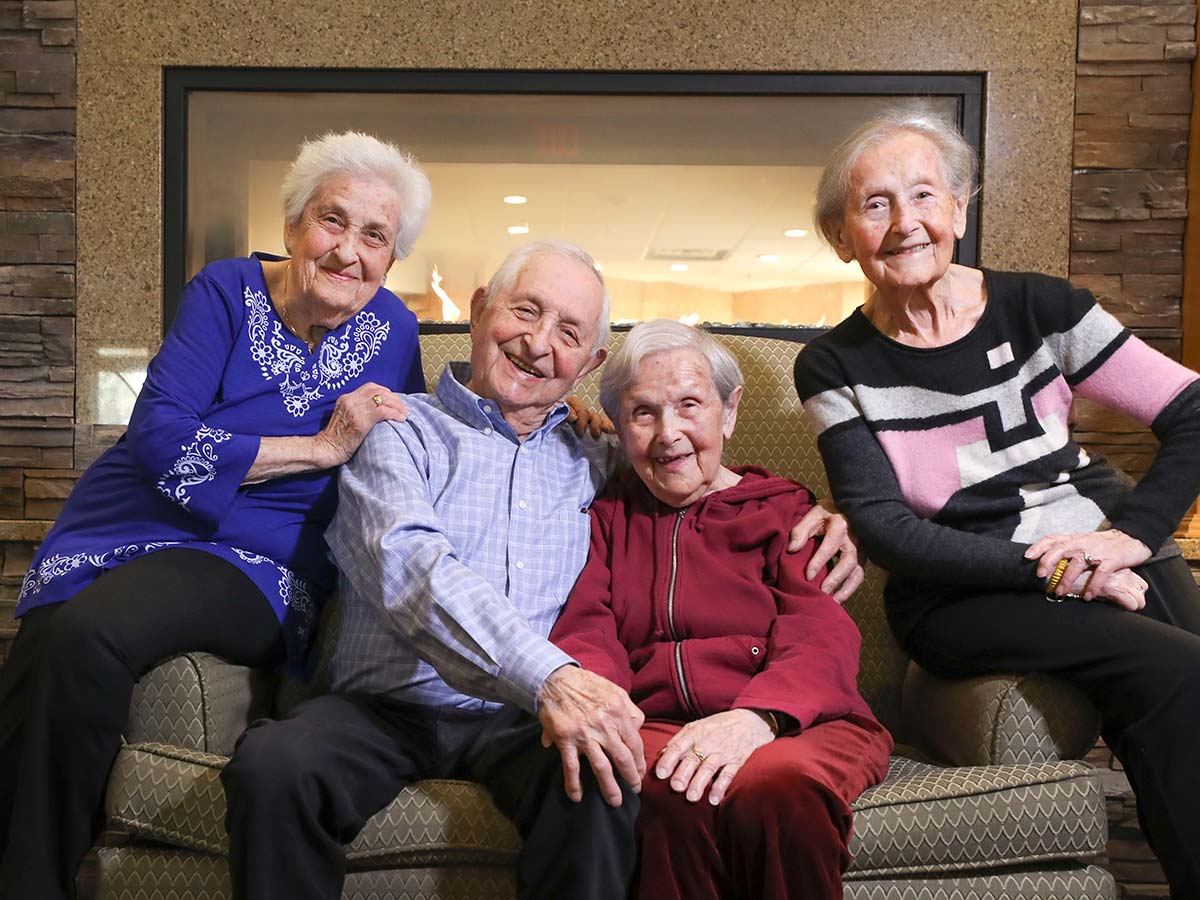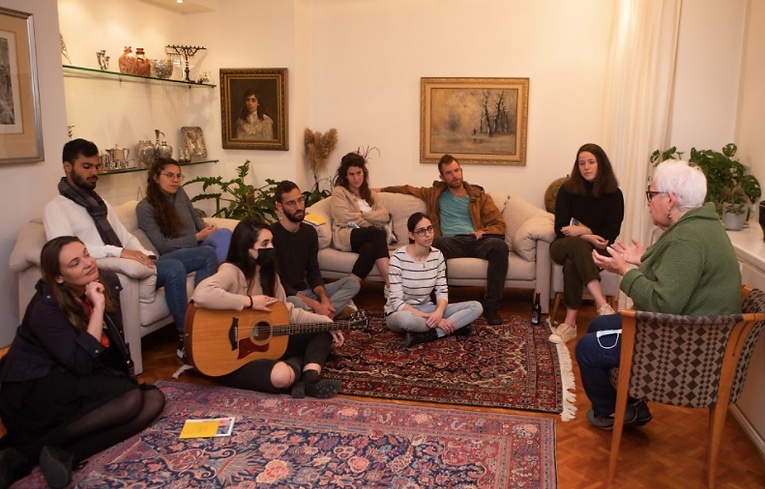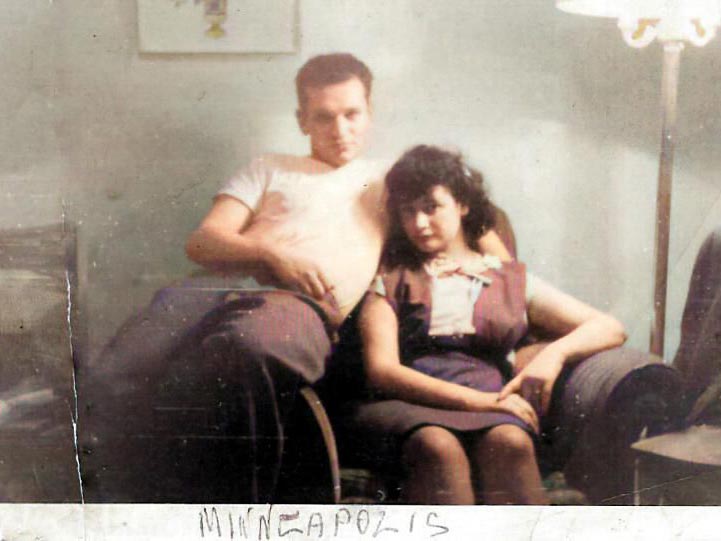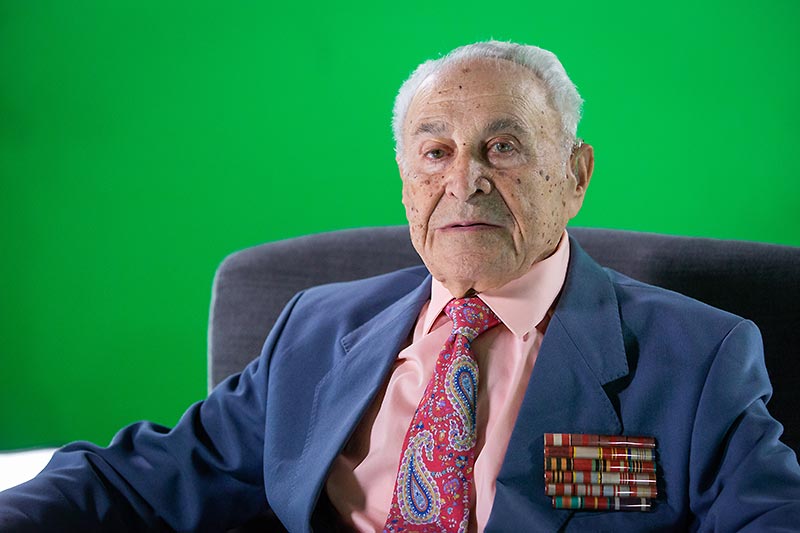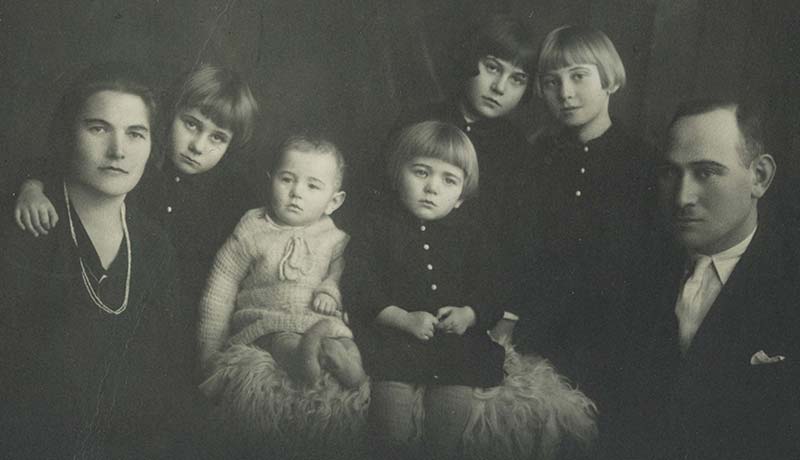Community Connections
Partnership Brings Survivor Voices to Hearts and Homes
They have gathered on living room sofas, on university lawns, in synagogue sanctuaries, in public squares, and even in embassy conference rooms for intimate conversations that have a resounding…
Tuesday, March 28, 2023
Dancers Give Expression to the Emotions of Testimony
East Coast dance artist Rachel Linsky combines movement and testimony to create a novel form of Holocaust education.
Rachel directs and choreographs ZACHOR, an initiative that honors…
Thursday, October 20, 2022
A New Generation Embraces Music the Nazis Tried to Stifle
Alexa Dollar flings open her arms and spins across the stage, relishing the moment as if she’s just arrived at a party thrown in her honor. She kicks out her leg and flutters back across the floor,…
Monday, May 23, 2022
Four Siblings—Aged 95, 97, 99, and 100—Record “Last Chance Testimony” Stories of Survival
Sally (Fink) Singer still cries over the spilled milk. Yes, it happened more than 80 years ago. And at the age of 100, Sally knows that her siblings – Anne (99), Sol (97), and Ruth (95), who to this…
Wednesday, April 13, 2022
New Partnership Brings Survivor Voices to Hearts and Homes
Alan Rose was repeating himself. He was stuck in a particularly difficult part of his story about being deported from a labor camp to Buchenwald Concentration Camp. Josh Turnil and the guests he had…
Thursday, March 24, 2022
Thousands of Georgia Students Participate in Willesden Lane Education Event
More than 18,000 students and 250 teachers from school districts across Georgia last week experienced famed pianist Mona Golabek's livestreamed performance adapted from her acclaimed book, The…
Tuesday, March 22, 2022
A Search For Family Leads to a ‘Bittersweet Revelation’
When Deborah Long was a teenager, she often came home to find her mother sitting with the latest issues of Life or Look magazine, quietly tearing out pages.
“You see this picture?” her mother…
Wednesday, October 13, 2021
He Fought the Nazis, Survived the Communists, and Just Celebrated his 100th Birthday—in Brooklyn
Until he retired from the Soviet Red Army in 1967, Leonid Rozenberg carried the banner at the head of the semi-annual military parade in the city of Lugansk, in what is now Ukraine, with hundreds of…
Tuesday, October 5, 2021
It Took 50 Years For Father and Son to Tell This Story Together
On an autumn day in 1998, Joel Poremba waited in a bedroom with his wife and infant son as his father sat in his Southern California living room with an interviewer from USC Shoah Foundation. This…
Monday, August 30, 2021
